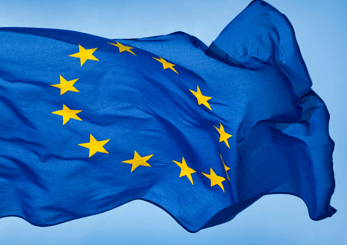Ghana and EU sign €175m financing agreements
 Ghana and the European Union (EU) have signed four financing agreements, totalling €175 million to support Public Financial Management (PFM), investment in sustainable agriculture development, decentralisation and climate change.
Ghana and the European Union (EU) have signed four financing agreements, totalling €175 million to support Public Financial Management (PFM), investment in sustainable agriculture development, decentralisation and climate change.
The €102 million agriculture programme aims at increasing agricultural incomes, promoting inclusive climate resilient and sustainable economic growth in rural communities of the Upper West Region by 2025.
The €45 Million decentralisation support has the overall objective of building effective, accountable and inclusive institutions at all levels for sustainable development while the €20 million Resilience Against Climate Change promote inclusive climate resilient and sustainable economic growth in rural communities.
The €8 million programme aims at improving economic governance and business environment and to maximise the benefits of the Economic Partnership Agreement to Ghana.
Mr William Hanna, EU Ambassador and Mr Ken Ofori-Atta, Minister of Finance signed the agreements under the Annual Action Programme 2017, supported by the 11th European Development Fund.
In his address, Mr Ofori-Atta said agriculture, PFM, Decentralisation and Climate change were priority areas for government in terms of job creation, service delivery and better financial management.
He said the policies and programmes in the 2018 Budget Statement underscored government’s commitment to improve agricultural production and position the sector as one of the main drivers of the country’s economic transformation.
The funds would be used to provide infrastructure such as dams, feeder roads and warehouses in the Upper West Region and three districts from the northern region, which border the Upper West Region.
Mr Ofori-Atta said the support would complement government’s effort to build a strong agro-based economy that would support the industrialisation agenda in line with the “One District, One Factory initiative.”
The Minister said the support for PFM would help build the capacities of oversight bodies such as the Ghana Audit Service, the Internal Audit Agency, Public Procurement Authority and Parliament to deepen accountability and ethics.
Mr Ofori-Atta reiterated government’s commitment to decentralisation, saying the availability of essential services at the doorsteps of citizens remained a top government priority.
Commenting on the agreement, Mr Hanna said the four programmes would contribute to Ghana’s achievement of the Sustainable Development Goals and help the country sustain a path of inclusive and sustainable economic growth.
“This is the path that leads Ghana beyond Aid, a path on which we are proud to be partners,” he added.
Source: GNA
